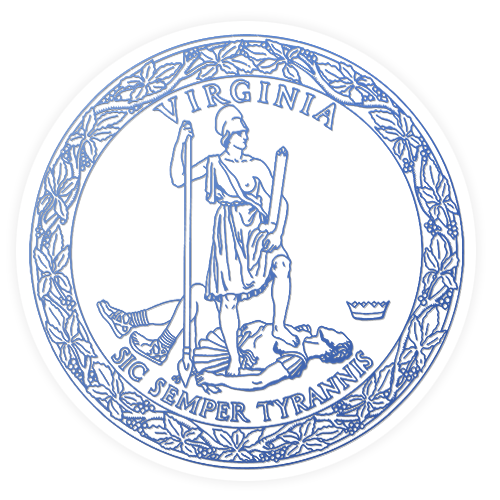
NORFOLK—Governor Ralph Northam celebrated the launch of Virginia’s first zero-emission electric buses today, as he ceremonially signed a new law that provides dedicated funding for the first time in Hampton Roads Transit’s history.
The Governor was joined by Senator Louise Lucas, who sponsored Senate Bill 1038, and Delegate Alex Askew, who sponsored House Bill 1726. Secretary of Natural Resources Matthew Strickler, and Director of the Department of Rail and Public Transportation (DRPT) Jennifer Mitchell also participated.
“This legislation provides critical funding to increase access to public transit in a vital economic region of the Commonwealth,” said Governor Northam. “The transition to all-electric transportation in the Hampton Roads area will help combat climate change, reduce pollution, and drive a clean energy future across Virginia.”
The legislation creates the first-ever dedicated Hampton Roads Regional Transit Program and Fund, which will be managed by the Hampton Roads Transportation Accountability Commission. Under the new law, cities will continue funding public transit, but Hampton Roads Transit (HRT) will implement a new regional program of routes paid for with statewide and regional funding. This is a significant improvement to HRT’s traditional funding, which is built mostly on local general funds and statewide recordation tax revenues. HRT contracts with six separate cities each year, and the result has been HRT cobbling together a bus service that often experiences gaps and long wait times for customers.
“We’re making history today that will benefit commuters and businesses across Hampton Roads for years to come,” said President and CEO of HRT William Harrell. “A mix of reliable transit funding is long overdue, and better connections and faster commutes on public transportation will benefit everyone, even those who don’t ride the system themselves.”
HRT will now develop a core network of bus routes to better connect the region with consistent and reliable transit service. New buses, new customer amenities, mobile ticketing, and improved technology will make the service more convenient.
Improved bus service will be phased in, with the first set of higher frequency routes launching in the cities of Hampton and Newport News in 2022. The complete network will feature 13 core bus routes in addition to other limited-stop services that connect major employment areas across the region.
“HRT is the largest bus network in the Commonwealth, and it’s long overdue to provide sustainable funding,” said Senator Lucas. “But after decades of inaction, I was able to get legislation passed that will allocate funding to provide much-needed support to help the transit system better serve a vastly diverse and growing region. Hampton Roads deserves a reliable bus system that fits the modern era, and I am proud to say that this new funding will do just that.”
A glimpse into the future of public transit rolled into the parking lot at HRT on Friday, when six new, all-electric buses were commissioned during the bill signing ceremony.
HRT is launching Virginia’s first public transit buses that are all-electric and produce zero emissions. Under this initiative, prioritized through DRPT’s MERIT prioritization program and funded by a combination of sources, including the Department of Environmental Quality’s Clean Transportation Voucher Program, the Volkswagen Environmental Mitigation Trust, and the Federal Transit Administration’s Low- or No-Emission program, HRT has agreed to remove the same number of diesel buses from its fleet. Governor Northam announced in October 2018 that the Commonwealth would allocate $14 million, or 15 percent, of the Volkswagen Environmental Mitigation Trust to fund the deployment of all-electric transit buses across Virginia.
“Today we recognize the significance of dedicated transit funding, environmental sustainability, and customer service as the foundation of economic enterprise and growth,” said Secretary of Transportation Shannon Valentine. “The future of transportation is a multimodal network with a focus on safety and smart choices.”
The six new electric transit buses unveiled today feature advanced battery technology and were manufactured by Proterra in Greenville, South Carolina. The electric buses will be exclusively used on Route 20, the busiest bus route in the Commonwealth, which runs between the Downtown Norfolk Transit Center and the Virginia Beach Oceanfront on Virginia Beach Boulevard. This marks another turning point for HRT as it continues its transition into one of Virginia’s most progressive transit agencies.
“Virginia is stepping up to reduce carbon pollution, thanks to Governor Northam’s leadership and commitment to addressing climate change, protecting public health, and transitioning to a clean economy,” said Secretary of Natural Resources Matthew J. Strickler. “Investing in the transition away from dirty transportation fuels is a critical step, and the Commonwealth will continue to develop projects and partnerships to move us toward cleaner transportation.”
A 2018 study by the Union of Concerned Scientists rated Virginia as one of the best places for electric buses based on carbon emissions, with electric buses producing less than half of the climate pollution of diesel or natural gas buses.
“Zero-emission vehicles fit hand-in-glove with our mission of building a clean and sustainable energy future,” said Robert M. Blue, Co-Chief Operating Officer and Executive Vice President, Dominion Energy Virginia. “Our goal is to reach net-zero carbon and methane emissions by 2050. But we also intend to go beyond net zero, by helping other sectors of the economy—including transportation—shrink their own carbon footprints.”
The U.S. Environmental Protection Agency has identified diesel exhaust from sources such as transit buses as a major factor in the urban air pollution that disproportionately affects low-income and disadvantaged communities. Electric buses have zero tailpipe emissions and provide clean air benefits to communities that have historically borne a greater burden from fossil fuel pollution.
# # #